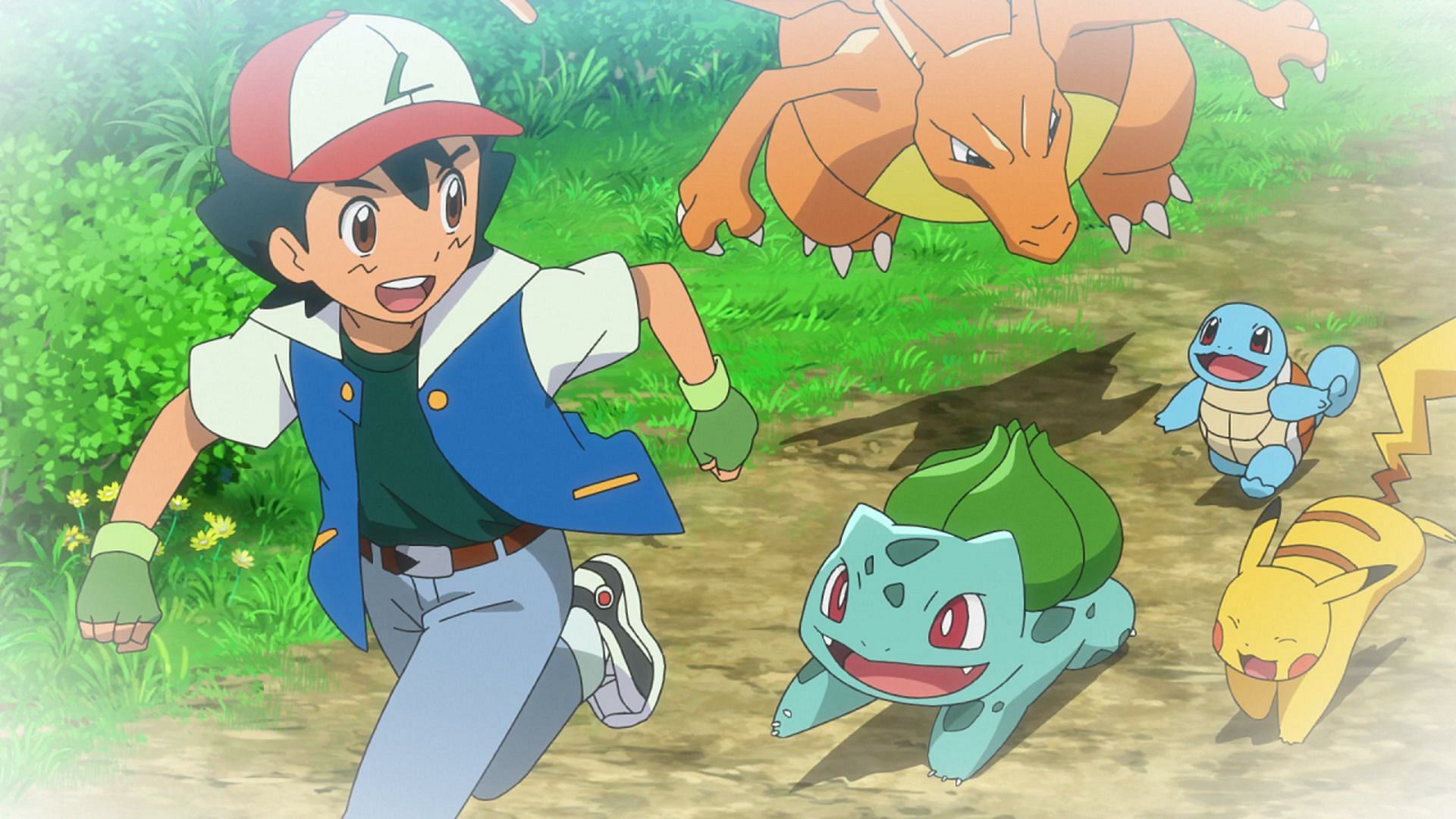The digital world, it seems, is always buzzing with new stories, and sometimes, these stories touch upon the private lives of public figures. One name that has, in a way, been part of many online conversations lately is Ash Kash. When you hear talk about "Ash Kash leaks," it's about certain private materials allegedly making their way onto the internet without permission. This kind of situation, you know, really brings up important questions about privacy and how we all interact with content online.
It's a rather common thing these days, isn't it? Public figures, especially those who gain popularity on social media platforms, often find their personal lives becoming a topic of broad discussion. This can, in some respects, lead to uncomfortable situations, particularly when private moments are shared without consent. So, when people look up "Ash Kash leaks," they're often trying to figure out what happened, and what it all means.
This article aims to shed some light on the general idea behind such online occurrences, focusing on the broader implications for privacy and responsible online behavior. We'll explore who Ash Kash is, talk about the general idea of online content issues, and discuss, very importantly, how we can all approach these kinds of situations with a bit more thought and care. You see, it's about more than just one person; it's about the bigger picture of our digital lives.
Table of Contents
- Who is Ash Kash? A Glimpse into Her Background
- Personal Details and Bio Data
- The Idea of Online Content Issues: What Are "Leaks"?
- Why These Things Happen: A Look at the Motivations
- The Ripple Effect: Impact on Individuals and the Online Community
- Respecting Privacy in the Digital Age: Our Role
- What Can Be Done: Steps for Safety and Support
- Common Questions About Online Privacy
Who is Ash Kash? A Glimpse into Her Background
Ash Kash, whose actual name is reportedly Ashaley, has become quite a known figure on various social media platforms. She gained a lot of attention, you know, for her distinctive look and engaging presence, especially on Instagram and TikTok. People often admire her fashion sense and the way she carries herself, which has helped her build a very significant following online. She's, like, a prime example of someone who has really made a name for herself through digital content creation.
Her rise to prominence, in a way, shows just how much influence social media personalities have today. She has, basically, cultivated a strong connection with her audience, sharing aspects of her life and style. This kind of public presence, however, sometimes comes with its own set of challenges, especially when it comes to keeping one's private life, well, private. It's a tricky balance, isn't it, between sharing and protecting yourself?
Personal Details and Bio Data
| Detail | Information |
|---|---|
| Full Name | Ashaley (Last name not widely publicized) |
| Known As | Ash Kash |
| Nationality | American |
| Occupation | Social Media Personality, Model |
| Popular For | Instagram, TikTok content, unique appearance |
| Online Presence | Active on various social media platforms |
The Idea of Online Content Issues: What Are "Leaks"?
When we talk about "leaks" in the context of online content creators, it usually refers to private photos, videos, or messages that get shared without the person's permission. This can happen for many reasons, from hacking to someone they trusted betraying that trust. It's a rather serious violation of privacy, and it can, you know, cause a lot of distress for the person involved. The term "ash kash leaks" just points to this kind of situation involving her.
These kinds of situations, you know, highlight a bigger problem in the digital world: the constant struggle to keep personal information secure. Once something is out there on the internet, it's very, very hard to pull it back completely. This is why, in a way, understanding how these things happen and what the consequences are is so important. It affects not just the person whose privacy is invaded, but also the broader online community and how we view personal boundaries.
The spread of such material, too, often relies on people sharing it further, sometimes without thinking about the impact. It's a chain reaction, almost, where one person's private moment can become a widespread topic. This is why, you know, discussing "ash kash leaks" isn't about the content itself, but about the ethics of its dissemination and consumption. It's about respecting boundaries, even when they seem to have been crossed by others.
Why These Things Happen: A Look at the Motivations
There are many reasons why private content might end up being "leaked," and honestly, none of them are good. Sometimes, it's about financial gain, with individuals trying to sell or profit from someone else's private moments. Other times, it could be a form of revenge or a way to cause harm to a person's reputation. It's, like, a really sad side of the internet, isn't it?
Another factor, you know, can be the sheer desire for attention or notoriety. Someone might share private material just to get a reaction or to feel important, without considering the devastating effects on the person involved. This kind of behavior, in some respects, shows a real lack of empathy and understanding of digital ethics. It’s a very concerning trend, basically, that we see too often.
And then there's the issue of security. Despite our best efforts, online accounts can be hacked, and data breaches do occur. Even if someone is very careful, there's always a slight chance their private information could be compromised through no fault of their own. This is why, arguably, discussing "ash kash leaks" also brings up the need for stronger cybersecurity measures and more awareness about digital safety for everyone. It's a complex issue, really.
The Ripple Effect: Impact on Individuals and the Online Community
The impact of "leaks" on the person involved can be absolutely devastating. Imagine having your most private moments, you know, suddenly exposed to the entire world. It can lead to immense emotional distress, anxiety, and a feeling of betrayal. For public figures like Ash Kash, this kind of exposure can also damage their careers and public image, making it very hard to move forward. It’s a really tough situation to deal with, basically.
Beyond the individual, these incidents, too, send a chilling message to the broader online community. They remind everyone that privacy online is fragile, and that what we share, even in private, could potentially be exposed. This can make people more hesitant to express themselves freely or to trust online platforms, which is, in a way, a shame for genuine connection. It erodes trust, you see, across the board.
Furthermore, the widespread discussion and sharing of "ash kash leaks" or similar content can normalize the idea that it's okay to consume or spread such material. This, you know, is a dangerous path. It encourages a culture where privacy is not respected and where individuals are seen as commodities rather than people with feelings and boundaries. We, like, need to think about what kind of online world we want to build, don't we?
Respecting Privacy in the Digital Age: Our Role
So, what can we do when we encounter discussions about "ash kash leaks" or similar situations? The most important thing, perhaps, is to remember that behind every online name is a real person. Spreading or even looking for leaked private content, you know, contributes to the harm done to that person. It's about empathy, basically, and choosing not to participate in something that hurts someone else. It's a simple choice, really, but a powerful one.
Think about it: if someone's private information was shared without their consent, would you want to be part of the problem by viewing or sharing it? Most people, I think, would say no. Our actions online, you know, have real-world consequences, and choosing to respect privacy is a very active way of showing support for others. It’s a way of saying, “I believe in boundaries.”
Instead of seeking out or sharing such content, we can choose to report it if we see it, or simply ignore it. We can, you know, direct our attention to positive and constructive online interactions instead. This helps create a safer and more respectful online environment for everyone, which is, you know, something we all want. Learn more about online ethics and digital citizenship on our site, for instance.
What Can Be Done: Steps for Safety and Support
For individuals like Ash Kash, who might be dealing with the fallout of privacy breaches, there are, you know, steps they can take. This includes reporting the content to platforms where it's being shared, seeking legal advice, and getting support from friends, family, or mental health professionals. It's a very difficult time, and having a support system is, like, crucial.
For platforms and authorities, the challenge is to act quickly to remove illicit content and to hold those responsible accountable. This is, you know, an ongoing battle, as new content can pop up just as quickly as old content is taken down. There's a constant need for vigilance and cooperation between tech companies and law enforcement to protect individuals' privacy. It’s a bit of a cat-and-mouse game, really.
As members of the online community, we can, you know, advocate for stronger privacy protections and better enforcement against non-consensual sharing of private content. We can also educate ourselves and others about online safety and the importance of digital boundaries. It’s about building a better internet for everyone, you know? And for more detailed information on protecting your digital footprint, you can link to this page here.
Common Questions About Online Privacy
People often have questions about privacy, especially when topics like "ash kash leaks" come up. Here are a few common ones:
What does "leaked content" actually mean in this context?
Basically, "leaked content" refers to private photos, videos, or messages that were never meant for public viewing but somehow ended up being shared widely online without the person's permission. It’s a breach of trust or security, you know, that exposes personal material.
Is it illegal to share someone's private content without their consent?
Yes, in many places, sharing someone's private content without their consent is absolutely illegal and can carry serious consequences. It's considered a violation of privacy, and sometimes, you know, it falls under laws related to harassment or revenge porn. It's a very serious matter, legally speaking.
How can I protect my own privacy online?
Protecting your privacy online involves several steps. You should, you know, use strong, unique passwords for all your accounts, enable two-factor authentication, and be very careful about what you share, even with people you trust. Regularly review your privacy settings on social media platforms, too, and think twice before clicking on suspicious links or downloading unknown files. It’s about being smart, basically, with your digital life. For a deeper dive, consider looking at reputable sources on online ethics, like those found on a general online privacy advocacy site.



Detail Author:
- Name : Brooke Bruen
- Username : kole.kuhlman
- Email : ashton.pollich@gmail.com
- Birthdate : 2002-02-11
- Address : 3732 Vena Summit Suite 962 Harryview, VT 22439-6281
- Phone : +1.206.353.6289
- Company : Dicki and Sons
- Job : Technical Specialist
- Bio : Nesciunt necessitatibus rerum eaque fuga in qui voluptatem. Eum assumenda nihil non. Sint nemo consequatur incidunt atque ea voluptatem repellat.
Socials
linkedin:
- url : https://linkedin.com/in/kamron.cremin
- username : kamron.cremin
- bio : Voluptas totam placeat numquam et.
- followers : 1156
- following : 1387
facebook:
- url : https://facebook.com/cremink
- username : cremink
- bio : Molestiae vel sed sit et. Et molestias officia sint sint vitae laboriosam.
- followers : 4717
- following : 2461



























